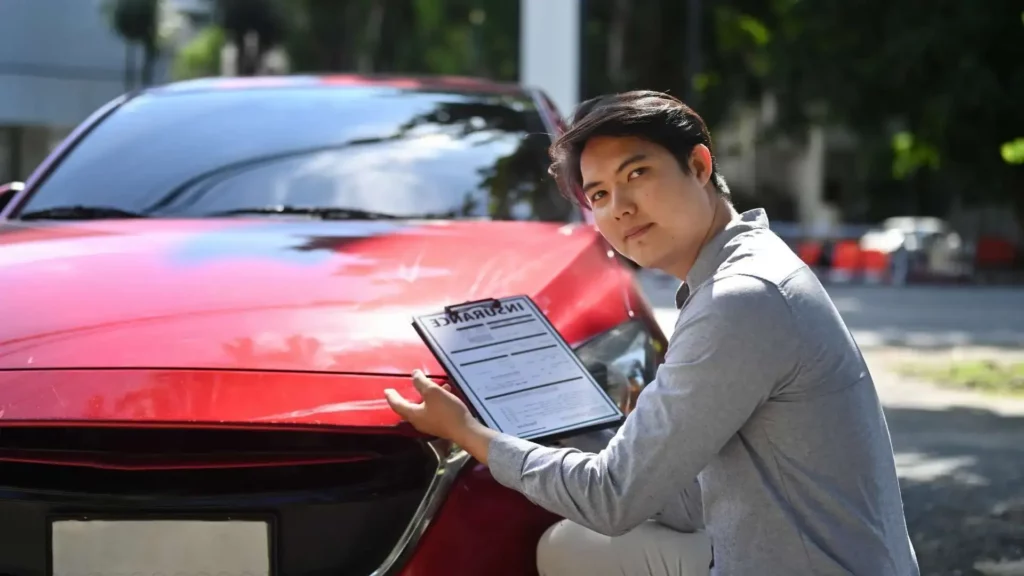Almost all drivers are required to carry a minimum amount of car insurance to legally drive in the United States. But, understanding how insurance companies set their car insurance rates can be confusing. Auto insurance companies refer to a number of variables while assessing the risk or how likely you will be to file a car insurance claim. Simply put, the lower your perceived risk, the better your car insurance rate.
Knowing what factors impact your car insurance rates can help when comparing auto insurance quotes and reviewing policy renewals. Beem, America’s first Al-powered Smart Wallet App, can help you understand the determining reasons behind your auto insurance.
Here are some of the most important factors affecting your car insurance rates include:
Driving Record
Depending on your state, auto insurance providers examine your driving history over the previous three to five years. It’s one of the main factors that affect how much your auto insurance will cost. If you have a history of at-fault accidents, traffic violations and/or a DUI/DWI conviction, you might have to pay more. You may even find it difficult to get car insurance in case of a bad driving record.
On the other hand, if you have a clean record, you might save up to 40%. You can work to improve it by practicing safe driving habits and avoiding violations such as speeding tickets and accidents.
Frequency Of Usage
Your annual mileage is taken into consideration in calculating insurance rates. The more you drive, the higher the risk of you being in an accident. If you drive a long distance to work every day, your insurance premiums may be higher than those of who drive occasionally.
Credit History
Many car insurance companies rely on credit-based insurance scores when setting rates. Credit history predicts the possibility of you making a claim in the future. Note that using credit-based insurance scores for car insurance pricing is banned in California, Michigan, Massachusetts and Hawaii.
Type Of Coverage
Your car insurance rates will be significantly impacted by the coverage you select. So, don’t stick to lower prices at the expense of getting the types of coverage and financial protection that you actually need.
Comprehensive coverage, collision coverage, uninsured/underinsured motorist coverage, as well as medical costs or personal injury protection, are additional coverages that are frequently included in an automobile insurance policy. You might want to consider other optional safeguards like towing and labor costs, rental reimbursement and sound system coverage.
Car Insurance History
If you are a new driver with no history of car insurance policies, expect to pay a higher rate. That is because car insurance companies won’t have much information available to make a realistic assessment of your risk.
A “coverage gap”, that is, the period of time when you don’t have car insurance, can also cause higher rates when you buy auto insurance because insurers see the coverage gap as a higher risk.
If you don’t have car insurance but want to avoid the disadvantage of a coverage gap, getting non-owner car insurance is a good option to ensure continuous car insurance coverage.
Deductible Amount
The deductible is the amount you agree to pay before your insurance comes in to help pay for a covered loss. A limit is the maximum amount your policy will pay toward a covered loss. Usually, each policy coverage has its own limit. You can choose deductible amounts that range from $250 to $2,500. The larger the deductible, the less you will have to pay in insurance premiums.
Car Make and Model
Your car’s make and model also have a big impact on car insurance rates. The insurance provider will review prior claims for similar models to assess its repair prices, theft rates, and settlement amounts for comprehensive claims.
For example, on average, a truck is 3% cheaper to insure than a sedan. Cars such as the Honda Accord or a full-size Ford pickup tend to be more expensive to insure as they are more likely to be stolen.
Since cars with in-built safety features are less likely to result in costly claims, car insurance companies want to insure them. So, you may be eligible for discounts on your car insurance premium if you drive a vehicle with built-in security features, such as airbags and anti-theft systems.
Age and Driving Experience
Drivers between the ages of 16 and 19 are three times more likely to be involved in a fatal collision than drivers over the age of 20.
The number of years you’ve been behind the wheel and on the road matters too while deciding the car insurance rates. Young and inexperienced drivers may have to pay higher car insurance rates as they are more likely to get involved in accidents. The insurance premiums begin to decline after age 25. On the other hand, senior drivers can be charged more after they pass the age of 65 due to their age-related health conditions.
Marital Status
It has been statistically found that married people are more responsible drivers, with up to 50% fewer accidents, compared to all unmarried drivers. As a result, they are considered the least risky drivers to insure. So, if you are married, ensure to inform your car insurance company and save money on premiums.
Gender
Like it or not, gender is also a factor that can influence car insurance rates in some states. For instance, men around the age of 45 pay approximately 6% less for car insurance than their female counterparts. On the other hand, teenage male drivers tend to pay the highest overall for car insurance. The gender gap in car insurance rates evens out for drivers in their 30s.
Location
The state/area you live in is another key factor to consider. It can affect the likelihood of your vehicle being damaged. Locational pricing factors include local weather conditions, accidents and car theft.
Big cities tend to have higher crime rates as well as congested roads where more accidents are likely to happen. Rural roads are less crowded and have less property-related crime. Other location-related factors include the price of medical care, the cost of auto repairs and the frequency of auto accident lawsuits.
Your state of residence is a pioneering locational factor affecting car insurance rates. Each state has its own laws regarding car insurance.
Conclusion
Some of the factors that affect car insurance rates are within your control, such as your driving history. Others, however, are largely out of your control, like your city’s population density and your age. So, weigh your options and shop around a bit for the best offer before settling on your car insurance provider and car insurance rate.


























